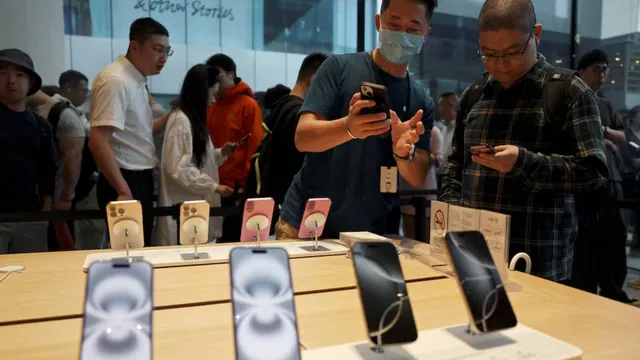- By Ajeet Kumar
- Sat, 17 May 2025 04:59 PM (IST)
- Source:JND
The White House and congressional officials have been scrutinising Apple's plan to strike a deal with Alibaba to make the Chinese company's AI available on iPhones in China, news agency Reuters reported citing The New York Times on Saturday. US authorities were concerned that the deal would help a Chinese company to improve its artificial intelligence capacities, broaden the reach of Chinese chatbots with censorship limits and deepen Apple's exposure to Beijing laws over censorship and data sharing, the paper said, citing three people familiar with the matter.
Apple teams up with Alibaba to bring AI features for iPhones
Apple and Alibaba did not immediately respond to the media report. In February, Alibaba confirmed its partnership with Apple to support iPhones' AI services offering in China. For Alibaba, the partnership is a major win in China's competitive AI market that is home to DeepSeek, which made headlines this year with models developed at a fraction of the cost of Western rivals.
The development could clear months of uncertainty over Apple's AI strategy for China, where it has been losing market share to domestic rivals, including a resurgent Huawei, whose smartphones have included AI tools since last year. Apple had selected Baidu as its main partner last year, but the Chinese company's progress in developing models for Apple Intelligence fell short of its standards, the Information reported in February.
Recommended For You
Why did Apple strike deal with Alibaba?
After that, Apple considered models developed by Tencent, TikTok-parent ByteDance, Alibaba and Deepseek, but it passed on Deepseek as the startup's team lacked the manpower and experience needed to support a large customer, the report said.
Rolling out the tools is crucial as iPhone sales dipped in the holiday quarter, usually Apple's biggest period of sales, due to a lack of AI features that were meant to be the chief selling point of its latest devices.
The Information said Apple's decision to go with Alibaba was partly driven by the vast troves of personal data the e-commerce giant has on users' shopping and payment habits, which could help it train models and deliver more customised services.
(With inputs from agency)



-1763650698308_m.webp)


